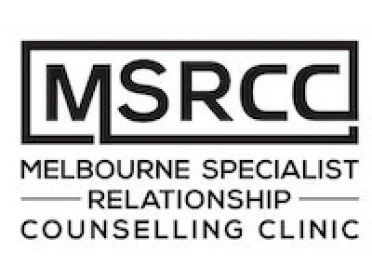
Through more than shared duties and daily routines, strong relationships are forged. Emotional intimacy is the thing that keeps couples linked as time passes – the ability to be yourself with your partner and receive trust, care, and understanding.
Relationships can easily become distant or disconnected with no emotional closeness. You may get along at first, but feel like something deeper is missing. The Melbourne Specialist Relationship Counselling Clinic (MSRCC) frequently works with couples that love one another but feel emotionally out of sync.
The good thing is that emotional intimacy isn’t simply a state of being present or absent. With care, effort and assistance, it may be deepened, rebuilt, and nurtured.
What Is Emotional Intimacy?
Emotional intimacy means feeling emotionally safe, understood and accepted in your relationship. It is what allows you to speak openly, share your thoughts, and know your partner will listen and respond with care.
It involves:
- Trust
- Vulnerability
- Empathy
- Honest communication
Unlike sexual intimacy, which is more about physical closeness, emotional intimacy is about being seen and known on a deeper level. Both forms of closeness are important in a healthy relationship, and one often supports the other.
Why Emotional Intimacy Matters in Relationships
Feeling emotionally close helps couples manage challenges, build resilience and stay connected during stressful times. When emotional intimacy is strong, it is easier to talk through disagreements, repair after conflict and enjoy each other’s company.
When emotional intimacy is missing, partners can begin to feel isolated or misunderstood, even if they are spending time together. Over time, this can lead to frustration, withdrawal, or a loss of physical connection too.
Working on your emotional closeness is one of the most important investments you can make in your relationship.
Building Emotional Intimacy: The Foundations
You do not need to wait for a crisis to start deepening your connection. Here are some of the key elements that create a strong emotional bond:
Listening with care
When your partner shares something, really tune in. Let them feel heard without trying to fix it straight away.
Speaking honestly and gently
Open communication works best when it comes without blame or judgement. Say how you feel, not just what happened.
Creating emotional safety
When you both feel safe to be yourselves, it becomes easier to open up.
Showing empathy
Let your partner know their feelings matter. Even a simple “That sounds tough” can make a big difference.
Being present
Emotional intimacy grows when you are fully there with each other, especially during vulnerable moments.
How to Build Emotional Intimacy in Everyday Life
Emotional closeness is not about big conversations every day. Often, it is the smaller, consistent moments that help couples feel more connected.
Here are some practical ways to begin building emotional intimacy:
Share more than the day-to-day updates
Try asking each other questions that go beyond logistics. For example, “What felt hard today?” or “What gave you energy this week?”
Create a regular time to talk
Set aside even 15 minutes to check in without distractions. No screens, just presence.
Be open about your feelings
Start small if it feels difficult. Let your partner know when you are feeling low, anxious or unsure — it builds trust over time.
Reconnect through shared experiences
Go for a walk, cook together or revisit something you used to enjoy. Shared time builds emotional connection.
Stay emotionally available, even during disagreements
If conflict arises, try saying something like, “I want to understand what is really going on for you.” This keeps the emotional door open.
If you are finding this difficult to do alone, our counselling for couples can support you in learning how to reconnect emotionally in a way that feels safe and respectful.
Common Barriers to Emotional Intimacy
It is normal to struggle with emotional closeness at times. Life stress, past experiences or communication habits can make it harder to open up.
You or your partner might:
- Avoid emotional conversations for fear of being rejected or misunderstood
- Find it hard to express feelings due to past trauma or upbringing
- Feel too busy or overwhelmed to prioritise connection
- Not know how to start the conversation
These barriers are not permanent. With time and support, you can work through them and build stronger emotional habits together.
When Counselling Can Help
If you and your partner want to connect more deeply but keep getting stuck, counselling can be a helpful next step.
At MSRCC, we offer therapy that focuses on building emotional understanding and repairing patterns that create distance. You do not need to be in crisis to benefit from support.
Counselling is also helpful if emotional disconnection is affecting your sexual intimacy. Often, feeling emotionally close can support physical closeness too.
You can learn more about how we work with couples on both emotional and physical connection by visiting our sexual intimacy counselling page.
Final Thoughts: Emotional Intimacy Can Be Rebuilt
Emotional closeness does not just happen. It is something that grows through attention, care and mutual effort. If you are wondering how to build emotional intimacy, or if you are feeling disconnected but still committed, it is never too late to start.
You do not have to figure it all out on your own. Whether you are in a new relationship or have been together for years, MSRCC is here to help.
If you would like to talk to someone or find out how counselling could support your relationship, contact us today. Together, we can help you reconnect in ways that feel real and lasting.


